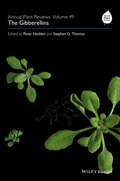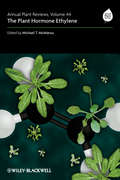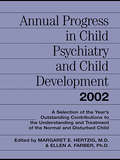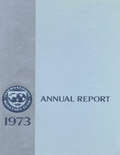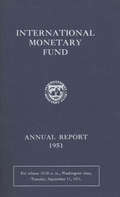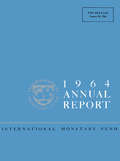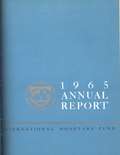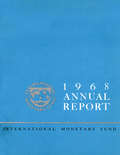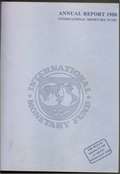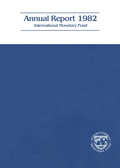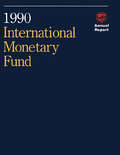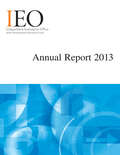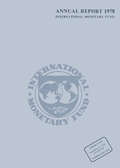- Table View
- List View
Annual Plant Reviews, The Gibberellins
by Stephen G. Thomas Peter HeddenFirst discovered as fungal metabolites, the gibberellins were recognised as plant hormones over 50 years ago. They regulate reproductive development in all vascular plants, while their role in flowering plants has broadened to include also the regulation of growth and other developmental processes. This timely book covers the substantial and impressive recent advances in our understanding of the gibberellins and their roles in plant development, including the biosynthesis, inactivation, transport, perception and signal transduction of these important hormones. An introductory chapter traces the history of gibberellin research, describing the many discoveries that form the basis for the recent progress. The exciting emerging evidence for the interaction of gibberellin signalling with that of the other hormones is critically evaluated. The occurrence of gibberellins in fungal, bacterial and lower plant species is also discussed, with emphasis on evolution. Manipulation of gibberellin metabolism and signal transduction through chemical or genetic intervention has been an important aspect of crop husbandry for many years. The reader is presented with important information on the advances in applying gibberellin research in agriculture and horticulture. Annual Plant Reviews, Volume 49: The Gibberellins is an important resource for plant geneticists and biochemists, as well as agricultural and horticultural research workers, advanced students of plant science and university lecturers in related disciplines. It is an essential addition to the shelves of university and research institute libraries and agricultural and horticultural institutions teaching and researching plant science.
Annual Plant Reviews, The Plant Hormone Ethylene (Annual Plant Reviews #65)
by Michael T. McManusThe plant hormone ethylene is one of the most important, being one of the first chemicals to be determined as a naturally-occurring growth regulator and influencer of plant development. It was also the first hormone for which significant evidence was found for the presence of receptors. This important new volume in Annual Plant Reviews is broadly divided into three parts. The first part covers the biosynthesis of ethylene and includes chapters on S-adenosylmethionine and the formation and fate of ACC in plant cells. The second part of the volume covers ethylene signaling, including the perception of ethylene by plant cells, CTR proteins, MAP kinases and EIN2 / EIN3. The final part covers the control by ethylene of cell function and development, including seed development, germination, plant growth, cell separation, fruit ripening, senescent processes, and plant-pathogen interactions. The Plant Hormone Ethylene is an extremely valuable addition to Wiley-Blackwell's Annual Plant Reviews. With contributions from many of the world's leading researchers in ethylene, and edited by Professor Michael McManus of Massey University, this volume will be of great use and interest to a wide range of plant scientists, biochemists and chemists. All universities and research establishments where plant sciences, biochemistry, chemistry, life sciences and agriculture are studied and taught should have access to this important volume.
Annual Plant: Processing, Properties and Applications (Composites Science and Technology)
by Mohamed Naceur Belgacem Ramzi Khiari Mohammed JawaidThis book gives an overview of the processing, properties, and applications of fibers and cellulose derivatives obtained from annual plant materials in the formation of non-wood source of pulp. The book comprises illustrations and tables summarizing the latest research on the production of fibers and cellulose derivatives using several key methods and/or characterization techniques. This book collates the information and knowledge of new ways to prepare cellulosic derivatives and describe the concepts and architecture of fibers obtained from annual plants. This book caters to researchers, policymakers, and industrial practitioners who are interested in natural fibers as a way to preserve the forest resource and to satisfy the increasing demand in pulps.
Annual Progress in Child Psychiatry and Child Development 2002
by Margaret E. HertzigAnnual Progress in Child Psychiatry and Child Development 2002 provides the most current research and scholarship available in the field of child psychiatry and child development. It is a benchmark against which all other contributions to the literature will be measured. Mental health professionals who work with children and adolescents will find the book invaluable for both its timely information and long-term reference value. Researchers will find substantial information in its pages for new spheres of inquiry.
Annual Report
by International Monetary Fundof the Executive Board for The Financial Year Ended April 30, 1983
Annual Report 1971: of The Executive Directors for The Fiscal Year Ended April 30, 1971
by International Monetary FundA report from the International Monetary Fund.
Annual Report 2000 Making the global economy work for all
by International Monetary FundA report from the International Monetary Fund.
Annual Report 2013 (Independent Evaluation Office Reports)
by International Monetary FundA report from the International Monetary Fund.
Annual Report 2014: From Stabilization To Sustainable Growth (Annual Report Of The Executive Board Ser.)
by International Monetary FundA report from the International Monetary Fund.
Annual Report Of The Executive Board For The Financial Year Ended April 30, 1978
by International Monetary FundFinancial report from the IMF
